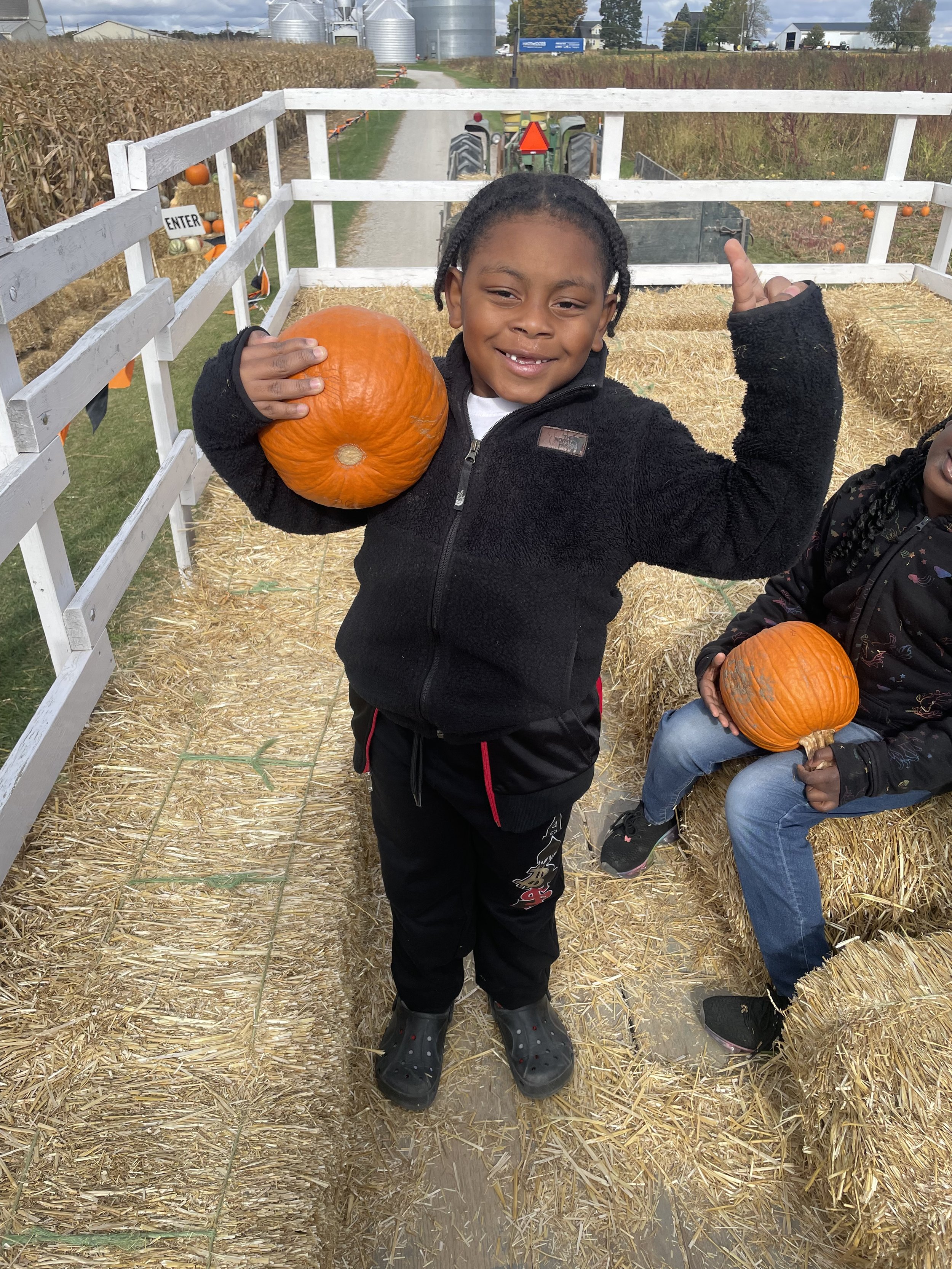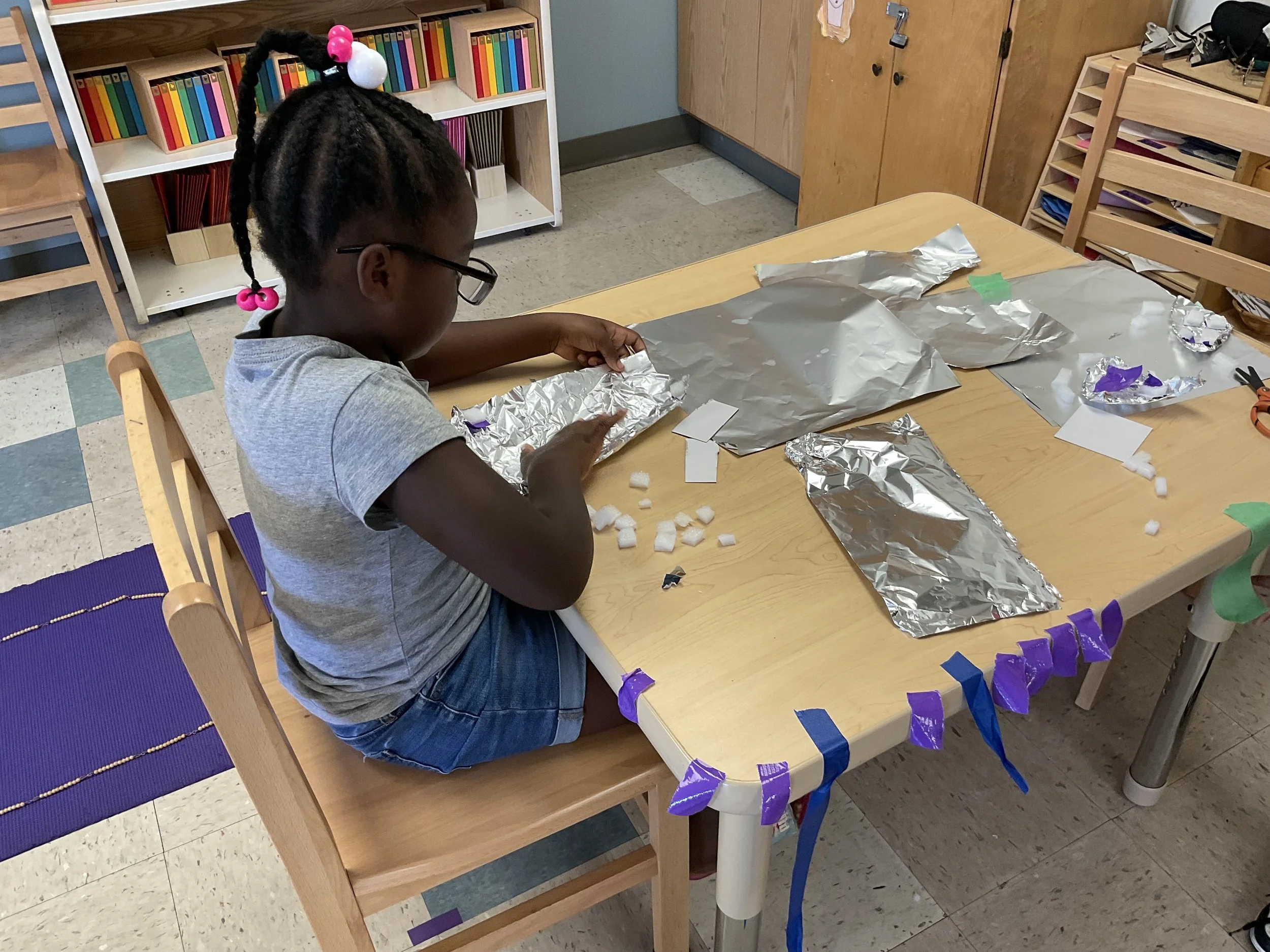It is our primary objective to set our students up for success. At MLK Montessori, each child's education stretches beyond the classroom.
FIELD TRIPS AND PERFORMANCES
MLK Montessori recognizes the value of field trips. Not only are they exciting for young children, but they also support in-class learning; they offer unique hands-on experiences; and they provide cultural enrichment opportunities that many students may otherwise miss. Each year, MLK Montessori students take approximately fifteen field trips. These are offered at no cost to the students, and destinations include, for example, an apple orchard, the History Center, and a farm. Parents are encouraged to attend these field trips as chaperones.
SPEECH THERAPY
To set our students up for success and to ensure that they enter kindergarten ready to learn, MLK Montessori offers free speech therapy services for any student with a speech disorder or language disorder. MLK Montessori’s speech therapist, Mary Richardson M.A., CCC-SLP of Sprout Speech, offers the following services:
Professional screening, evaluation and analysis of all students to determine their speech and language development needs
An individualized speech therapy plan and a list of goals for each student who is experiencing speech or language development delays
Weekly individual therapy sessions
Consultations with the child’s teacher regarding the most effective ways to facilitate the child’s communication in the classroom setting
Close collaboration with the family to develop goals and techniques for effective therapy in class and at home.
Library
MLK Montessori has a beautiful and welcoming school library, full of delightful, age-appropriate books that have been carefully selected to support the school’s Montessori curriculum. Students visit the library to select books at least once each week. The library is also home to several literacy-themed events throughout the year, including, for example, “Snuggle Night,” an event at which parents and students spend an evening cuddling and reading together in their pajamas.
Garden
MLK Montessori’s campus features a large, enclosed school garden, with areas devoted to flowers, herbs, and produce. MLK Montessori teachers and students are completely responsible for planting and caring for the garden, and, during school, students snack on the fruits and vegetables they have grown. The garden is an important component of MLK Montessori’s curriculum. It complements the Montessori philosophy that children learn through exploration and hands-on experiences. Moreover, gardening itself has many known benefits for young children:
It gets children outside and active. Digging, planting, and watering on a sunny afternoon are terrific ways to get some exercise while enjoying the beautiful weather.
Children learn about science and the environment. Gardening is an excellent opportunity to teach children biology basics, such as how the sun helps plants to grow, how plants produce oxygen through photosynthesis, and how vegetation contributes to a healthy environment.
Gardening teaches children how certain foods grow. Growing fruits and vegetables gives children a look into small-scale farming and may encourage an appreciation for the process that brings produce to grocery stores. It may even encourage children and their families to try growing their own fruits and vegetables.
Gardening encourages healthy eating. Planting a vegetable garden can lead to healthier meal times because children are more likely to try fruits and vegetables they have grown, and produce usually tastes better when it is fresh from the garden.
Gardening inspires responsibility and a strong work ethic. Maintaining a garden can help children understand what the rewards of hard work are and how taking care of something requires diligence and persistence.
MLK Montessori 's gardening program receives additional support from Ricky Kemery, the Allen County Horticulture Educator with the Purdue Cooperative Extension service. Mr. Kemery tests the school's soil, advises staff members on how to educate children about gardening, and — of course — provides guidance so that our garden flourishes.























